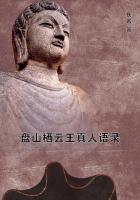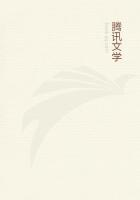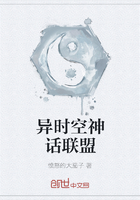People came from all over the world to Lexington to see him. Amongst the visitors from afar were the marquis of Lorne and the Hon. Mr. Cooper, who were on a tour through the United States. They came to Lexington to see General Lee. When they called at the house there happened to be no servant at hand, and my father, meeting them at the door, received their cards. Not having on his glasses, he could not read the names, but ushered the strangers into the parlour, and presented them to Mrs. Lee, without calling their names. My mother thought the tall, slender youth was a new student, and entered into conversation with him as such. Struck by his delicate appearance, she cautioned him against the harsh winter climate of the mountains, and urged him to be careful of his health. On this, Mr. Cooper explained who his companion was, and there was much amusement over the mistake.
The professors and students of the two institutions of learning were constant visitors, especially in the evenings, when young men came to see the girls. If his daughters had guests, my father usually sat with my mother in the dining-room adjoining the drawing-room. When the clock struck ten he would rise and close the shutters carefully and slowly, and, if that hint was not taken, he would simply say "Good night, young gentlemen." The effect was immediate and lasting, and his wishes in that matter, finally becoming generally known, were always respected. Captain W., who had very soon found out the General's views as to the time of leaving, was told on one occasion that General Lee had praised him very much.
"Do you know why?" said the Captain. "It is because I have never been caught in the parlour at ten o'clock. I came very near it least night, but got into the porch before the General shut the first blind. That's the reason he calls me 'a fine young man.'"
A young friend who was a cadet at the Virginia Military Institute called on my sisters one evening, and remarked, just for something to say:
"Do you know this is the first civilian's house I have entered in Lexington."
My father was in the room in the room in his gray Confederate coat, shorn of the buttons; also my two brothers, Custis and Fitzhugh, both of whom had been generals in the Confederate Army; so there was quite a laugh over the term CIVILIAN. I have already mentioned how particular my father was about answering all letters. It was a great tax on his time, and some of them must have been a trial to his temper. The following will explain itself:
"Lexington, Virginia, September 5, 1866.
"A. J. Requier, 81 Cedar St., New York.
"My Dear Sir: I am very much obliged to you for your kind letter of the 22d ult. So many articles formerly belonging to me are scattered over the country that I fear I have not time to devote to their recovery. I know no one in Buffalo whom I could ask to reclaim the Bible in question. If the lady who has it will use it, as I hope she will, she will herself seek to restore it to the rightful owner. I will, therefore, leave the decision of the question to her and her conscience. I have read with great pleasure the poem you sent me, and thank you sincerely for your interest in my behalf. With great respect, "Your obedient servant, "R. E. Lee."
Here is another one of many of a similar character:
"Lexington, Virginia, September 26, 1866.
"Mr. E. A. Pollard, 104 West Baltimore St., Baltimore, Md.
"Dear Sir: I return you my thanks for the compliment paid me by your proposition to write a history of my life. It is a hazardous undertaking to publish the life of any one while living, and there are but few who would desire to read a true history of themselves.
Independently of the few national events with which mine has been connected, it presents little to interest the general reader, nor do I know where to refer you for the necessary materials. All my private, as well as public, records have been destroyed or lost, except what is to be found in published documents, and I know of nothing available for the purpose. Should you, therefore, determine to undertake the work, you must rely upon yourself, as my time is so fully occupied that I am unable to promise you any assistance.
"Very respectfully, "R. E. Lee."
This autumn my sister Mildred paid a visit to our cousins, Mr. and Mrs. George Golsborough, living at "Ashby," near Easton, on the Eastern Shore of Maryland. She remained away there and elsewhere for several months. My father's letters to her, many of which have been preserved, are most interesting. They show very plainly many beautiful phases of his noble character and disposition:
"Lexington, Virginia, December 21, 1866.
"My Precious Life: I was very glad to receive your letter of the 15th inst., and to learn that you were well and happy. May you be always as much so as is consistent with your welfare here and hereafter, is my daily prayer. I was much pleased, too, that, while enjoying the kindness of your friends, we were not forgotten. Experience will teach you that, notwithstanding all appearances to the contrary, you will never receive such a love as is felt for you by your father and mother.















